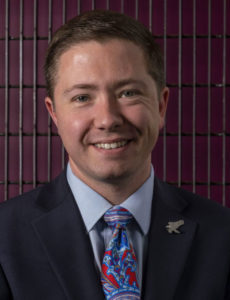 The Hurtt Locker is a biweekly opinion column. The views expressed are solely the author’s.
The Hurtt Locker is a biweekly opinion column. The views expressed are solely the author’s.
There’s a growing movement in America comprised of people with wildly diverse views from across the political and cultural spectrum. They’re coming together over dinner to respectfully debate the most contentious issues of our time. And as you might imagine, the Washington, D.C.-area is ground zero for this movement.
While there are more than a dozen organizations engaged in these civil dialogue events, the two most active groups in the D.C.-area are “Make America Dinner Again” and “Better Angels,” both of which host events in the area. I am both the Northern Virginia coordinator for Make America Dinner Again (MADA) and a semi-regular attendee to Better Angels events.
MADA was founded by two young liberals after the 2016 election. They sought to bring people who voted for Hillary Clinton and Donald Trump together over a meal to better understand why people voted the way they did in 2016. These dinners spread from the first one in San Francisco to now 17 city-based chapters that host regular dinners from coast to coast. I recently hosted a MADA event in Arlington with more than a dozen attendees, including fellow ARLnow columnist Nicole Merlene.
Attendees debated healthcare, immigration, and the environment, to name just a few topics. You can get a better idea of how MADA dinners go by watching coverage of the most recent Arlington dinner here.
Similarly, Better Angels was founded after the 2016 election by bringing Clinton and Trump supporters together to see if attendees could “respectfully disagree and find common ground.” Their discovery in that first gathering? “The results were remarkable,” according to their website. “We liked each other. We wanted to know more about each other. We wanted to keep on meeting. We wanted to help start workshops in communities all across America!”
This budding movement was invigorated by a 2018 report commissioned by More in Common titled, “Hidden Tribes: A Study of America’s Polarized Landscape.” The report surveyed 8,000 Americans, breaking them out into six “Hidden Tribes” – Progressive Activists (8% of survey respondents), Traditional Liberals (11%), Passive Liberals (15%), Politically Disengaged (26%), Moderates (15%), Traditional Conservatives (19%), and Devoted Conservatives (6%).
One of the key takeaways in this study is that all too often the “wings” (far-left and far-right) drive the public discourse across social media and in the headlines, while an “Exhausted Majority” tends to be solutions-oriented, open to compromise, and rarely newsworthy. People from the “wings” are the ones who make headlines because it’s what leads. We sometimes make hasty generalizations about other “Tribes” based on the loudest member, especially when that generalization confirms our own prejudice or worldview.
It’s important to note that the goal of MADA, Better Angels, and many of the other groups that engage in this space is not to change anyone’s mind, but to foster an atmosphere that’s conducive to respectful debate, even encouraging serious and sometimes contentious disagreement. These dinner events and workshops don’t exist to force everyone to conform to some “middle way,” nor is the goal to flip someone who’s adamantly in favor of a certain policy to completely flip on the issue.
In addition to Make America Dinner Again and Better Angels, there are a number of other groups working in this space, including Better Arguments Project, Bridging Divides Initiative, Courageous Collaborations, Essential Partners, Heterodox Academy, Learning Life’s Democracy Dinners, Living Room Conversations, Narrative 4, and Colorado State University’s Center for Public Deliberation.
These efforts exist to break down communication barriers between groups that – in some instances – have erected “echo chambers” around themselves and their “tribe” to shield themselves from viewpoints counter to their own. A culture of toleration and openness is key to the preservation of our republic, and it broadens our understanding of how our friends and neighbors see the world.
In an age of hyper-partisanship driven by public figures and political pundits, the temptation to retreat into our tribes and “otherize” our political adversaries is strong. We must make a conscious effort to reject this approach. We’re leaving countless public policy solutions on the table and deepening the divide between our American brothers and sisters. Perhaps it’s time we get together and make America dinner again.
Matthew Hurtt is an 11-year Arlington resident who is passionate about localism and government transparency and accountability. Hurtt is a member of the Arlington Heights Civic Association and was previously the chairman of the Arlington Falls Church Young Republicans. Hurtt prides himself on his ability to bring people of diverse perspectives together to break down barriers that stand in the way of people realizing their potential. He is originally from outside Nashville.

